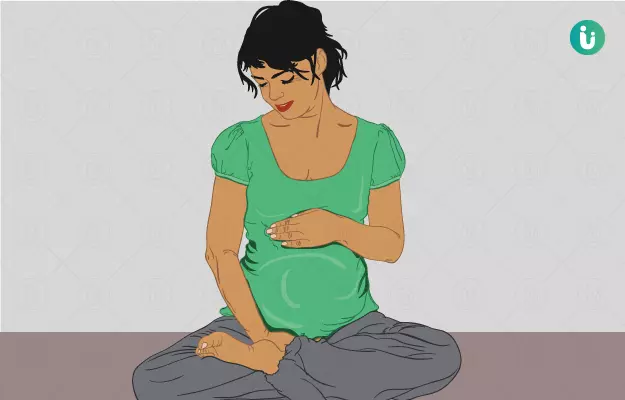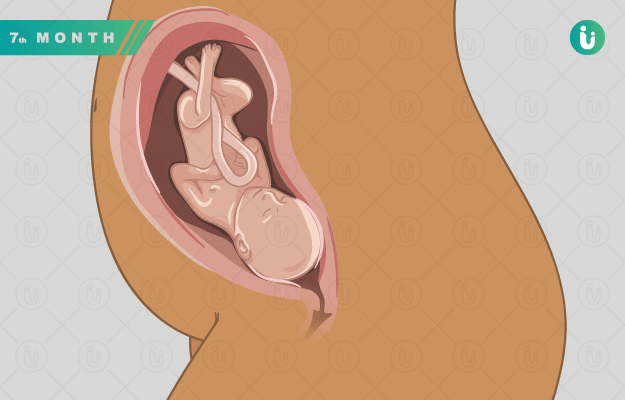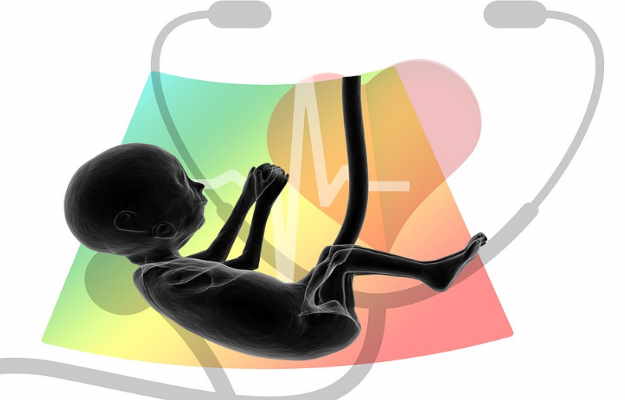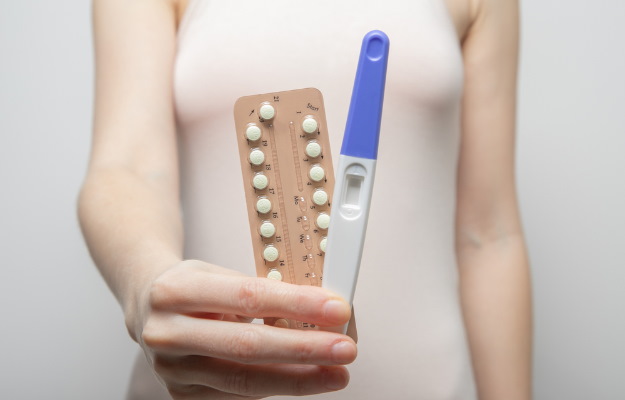Every woman dreams of becoming a mother. Some women conceive very easily, while others have to face a lot of challenges in getting pregnant. If you are also one of them who are facing issues in conceiving, you can take help from the tips mentioned below.
- Meet your gynecologist
- Make your body healthy before getting pregnant
- Focus on your sexual health
- What to stay away from when trying to get pregnant
- How to have sex to get pregnant
- How long does it take to get pregnant
- How long to try to get pregnant before getting help
Meet your gynecologist
Getting pregnant depends a lot on your body. Before conceiving, you should meet your doctor to clearly and completely understand the whole process of pregnancy. You may also have to get a few tests done for the same. These tests will tell if your body is prepared for the pregnancy or not. Through these tests, you may also get to know if there is any abnormality in your body and get complete treatment for the same at its early stage.
Make your body healthy before getting pregnant
It is important to make a plan before you start any work. Similarly, careful planning is needed to make your body and mind to be completely prepared for the pregnancy. For this, you’ll have to start with a few important things. One of them is a regular intake of folic acid. In this, you are supposed to take folic acid (Vitamin B9) supplements for a month. Vitamin B9 prevents a lot of complications which can happen during the pregnancy period. Besides this, it is very important to maintain a healthy weight. Being overweight makes your body prone to a lot of diseases. That’s why it is important to keep your body healthy. Following are a few ways to keep your body healthy:
Take complete diet
It is important to make your body healthy before trying to get pregnant.
If you do not eat healthy food, you may experience certain problems and complications during the pregnancy period. To avoid these problems, you should first include adequate amounts of fat and protein-rich food items in your diet. If you want to reduce weight before getting pregnant, you should eat food which is low in fat and rich in fiber. Besides this, you should also include carbohydrates, proteins, fats, vitamins, and minerals in your diet because they will help in keeping the hormone levels in your body balanced and make it easier for you to conceive.
Read more: Balanced diet chart
Start taking carbohydrates
A certain amount of carbohydrate is important for our body. Carbohydrate is considered one of the important nutrients for pregnancy. It is not only important for pregnancy but is also an important part of basic metabolic (energy producing) processes in our body. It is equally important not to consume those carbohydrate-rich foods which are harmful to the body, such as processed and Chinese food. Instead, you should consume green vegetables and fruits. Some natural sources of carbohydrate include sweet potato, potatoes, taro root (“arbi”), grams, bananas, mangoes, beans and other vegetables, etc (all fruits are a good source of carbohydrates).
Include fat in your diet
Our body also needs fat, especially unsaturated fat. Unsaturated fats are considered healthy for the body. They help in proper functioning of the body and help reduces the level of bad cholesterol (low-density lipoprotein or LDL) in our blood serum. An increased level of LDL increases the risk of heart diseases. Saturated fats are important for our bones because it helps in the absorption of calcium in our bones. Besides the bones, saturated fats are also important for other organs of our body such as the liver, lungs, brain, nerves and immune system
The body of a pregnant woman primarily needs fatty acids. They help in the normal functioning of the hormones and also improve the blood circulation of the uterus (a pear-shaped bag-like structure which carries the baby). Additionally, fats regulate the ovulation cycle and keep the lining of the cervix (a part of the birth canal) healthy thus aiding sperm cells to successfully fuse with the egg. Some important natural resources of saturated fat include coconut and coconut oil, olives and olive oil, butter, eggs, avocado, dry fruits, etc. Junk food and the food which is cooked in refined oil are harmful to the body. Hence, it is important that you only consume saturated fat from natural sources.
Eat protein-rich food
Proteins are important for conception (getting pregnant). It is considered to be an important nutrient for the body. In a research conducted by American College of Obstetricians and Gynecologists, it was found that eating a protein-rich diet has a positive effect on the fertility (reproductive ability) of the women who underwent the in vitro fertilization (IVF) procedure. Hence, it tells that a protein-rich and low-carbohydrate diet improves the quality of the eggs in women. It is important that you consume a diet rich in protein and low in carbohydrates for at least three months before you plan to conceive. You can get protein from various food products such as chicken, eggs, low-fat meat, fish, dairy products, beans, and dry fruits.
Find women health information
Drink plenty of water
Water is considered to be of vital importance for our body. Dehydration hinders the normal functioning of all the body parts. For you to get pregnant, it is important for all your body parts to function properly. Drinking adequate amount of water also keeps your uterus healthy. It also increases the production of cervical mucus which provides a medium for the sperms to travel and reach the egg. Hence, to conceive, it is important for you to drink ample amount of water every day.
Read more: How much water to drink in a day
Get a healthy routine
A healthy daily routine keeps you away from a lot of diseases. For a successful conception, you can change your daily routine as follows:
Take adequate sleep
It is very important to have a sound sleep for all the body parts and internal organs to work properly and efficiently. It plays an important role in balancing the body hormones. Studies show that low levels of melatonin and serotonin (hormones which are important for sleep) also decrease the duration of the luteal phase which is related to ovulation and menstrual cycle.
Read more: Sleep chart by age and gender
Exercise regularly
A regular exercise can help you conceive easily. That’s why you should maintain a healthy weight and include those exercises in your daily routine which help in keeping your uterus healthy and active. Regular exercise also helps you in preventing the diseases which make it difficult for you to conceive.
Read more: Household chores as a means of exercise
Stay stress-free/ Release your stress
Stress is also one of the major factors which hinder conception. You can practice yoga and meditation to release your stress.
Focus on your sexual health
For getting pregnant, it is important to take care of your and your partner’s sexual health. Any abnormality in the reproductive system starts causing problems in conceiving. That’s why, the couple should ensure that they are healthy physically, mentally, and sexually.
Read more: Sexual health tips
Men should boost sperm health
Increasing the number and quality of the sperms released in a man’s semen is considered very important for conceiving successfully. To increase the number of sperms in your semen, it is important to improve your daily routine. Also, it is important to stay away from bad habits and addictions. Consuming tobacco, smoking, and alcohol have a detrimental effect on your sexual health because they reduce the number of sperms. Besides this, men should also maintain a healthy weight.
Read more: How to increase sperm count
Using very hot water while bathing may destroy the sperms and reduce their count in the semen.
To improve the number of sperms, you should also change and improve your diet. Your diet should include zinc, folic acid, and vit. C rich food items. These nutrients are very effective in increasing sperm count. However, it takes up to three months for the number of sperms to increase.
A successful conception is not only related to a woman’s sexual health, but its possibilities also depend on men’s health. Hence, it is important for men to take a healthy diet. Following are a few nutrients which improve the production and quality of the semen:
Zinc
It is found in pumpkin and spinach. It increases the number and improves the motility of the sperms.
Read more: Zinc rich foods
Vit. C
Vitamin C is found abundantly in leafy vegetables and citrus fruits. It prevents the sperms from clumping together.
Selenium and Vit. E
Both these nutrients are found in almonds and chia seeds and help improve the quality of the sperms.
Omega-3 fatty acids
They are found in fish oil and chia seeds and improve the viability (ability to work successfully) of the sperms.
Men should not consume soybean because studies have indicated that soy-based food products like milk, tofu, and edamame contain genistein which reduces the motility of the sperms and destroys them.
Find men health information
Try to improve your fertility
To improve your physical and reproductive health, you should eat plenty of fruits and vegetables. An eight-year-long study about diet and fertility, which was done on 18000 women showed that the following are the eight things which improve fertility in women:
-
Unsaturated oil
It is found in nuts and seeds like apricot, almonds, olive oil and avocado oil. It increases the sensitivity of body cells to insulin and helps in reducing inflammation. These two factors are important in improving your fertility. -
Makes sure that you buy fishes like salmon and sardine from a good place because eating stale fish may badly affect your health.
-
Eat vegetable proteins like beans, peas, and nuts.
-
Consume whole grains, vegetables, and fruits.
-
Take whole milk and full-cream curd or yogurt.
-
Consume folic acid and multivitamins.
-
Eating iron-rich food such as whole grain, pumpkin, spinach, tomatoes, and beetroot is good for health.
-
Drink plenty of water.
-
Besides this, maintain a healthy weight with a BMI (Body Mass Index) of 20-24. BMI is an index which calculates the proportion of your weight and height. Being overweight may lead to irregular menstrual cycle and may also affect the ovulation process. Hence, it is important to be active and exercise regularly.
-
Also, provide your gynaecologist with your detailed medical history. Inform the doctor if you are on medication for diseases like high blood pressure, diabetes, PCOS (Polycystic Ovarian Syndrome), thyroid problems, etc. Inform your doctor about your previous pregnancy or abortion (if any), diet and lifestyle.
What to stay away from when trying to get pregnant
It is important for women to change their dietary habits and lifestyle before planning a pregnancy. Here are some habits that you should change or stop to be able to conceive:
Stop taking contraceptive pills
If you are using any birth control pills, you’ll have to stop them before pregnancy. Sometimes, pregnancy also depends on the type of contraceptive method used and the time period that your body might take to become fit for pregnancy after stopping the contraceptives. If you’re using Copper-T for birth control, your body will be ready to conceive soon after removing it. But, if you’re using hormone pills for birth control, your body will take a while to become fit for pregnancy. Women who have been using birth control pills for quite a long time may take longer to conceive. Usually, after stopping the pills, it takes 6-8 weeks for your body to get ready for pregnancy.
Do not use a condom during sex. If you want to conceive, you should immediately stop any kind of birth control method that you’re using.
Stop taking these medicines to get pregnant
A few medicines are found to have an adverse effect on conception. If you are on any of the following medication, you should consult your physician before attempting to conceive.
- Anti-inflammatory drugs
These include over-the-counter drugs such as ibuprofen or aspirin. - Chemotherapy
The medicines used in chemotherapy for cancer treatment may cause permanent ovarian failure. - Neuroleptic medicines
These are antipsychotic drugs which can interfere with your periods (menstrual cycles) and may also cause infertility. - Spironolactone
This medicine is used to reduce fluid retention in the body. The effects of this medicine are reversible and you can conceive a few months after stopping the medicine. - Painkillers
- Antidepressants
You should also check with your partner and consult a physician if your partner is taking one of the following medicines:
- Testosterone
Replacement testosterone (also known as complementary testosterone) affects the production of natural testosterone, which in turn, inhibits the sperm production. - Anabolic Steroids
These are used to increase muscle growth and reduce body fat. But, using this medicine may also affect your fertility. Hence, if your partner is a bodybuilder, he should stop his body-building efforts. - Antidepressants and antianxiety drugs
Certain medicines which are used to treat stress and depression may enter the reproductive pathway and may reduce the motility of the sperms. - Antifungal drugs
Ketoconazole, an antifungal drug, if used as an oral tablet may affect testosterone and sperm production.
What to avoid when trying to get pregnant
Scientific studies show that in females, drinking alcohol reduces the chances of conception. Researchers have concluded that if a woman drinks alcohol, her chances of conception are reduced even after having sex during her fertile period.
In fact, if you drink alcohol for up to five days a week then you reduce your chances of having a child. It may be difficult, but if you wish to have a baby you are advised to keep yourself and your partner away from wine, whiskey, scotch or any kind of alcohol-based drinks. You can also highlight to your partner not too drink heavily if he does not want to compromise with the quality of his semen. Drinking too much alcohol increases the testosterone level in your blood serum, which may cause problems like reduced quantity of the semen as well as sperms. Excessive drinking may also affect your performance during sex. Besides this, you and your partner should also reduce overconsumption of coffee and smoking.
Read more: Increasing sexual performance
There are some food products which you should not consume if you’re planning to get pregnant, these include:
Sugar
Experts say that the carbohydrate which is present in sugar is harmful to your body. This makes it difficult to balance the insulin level in your blood serum. Hence, pregnant women should not consume too much sugar. Stay away from food products containing refined sugar.
Mercury
Fishes are rich in protein, but sometimes, they may contain large amounts of mercury. If this mercury dissolves in your blood in excess, it can have adverse effects on your fertility. If you consume a fish rich in mercury during or before your pregnancy, it may later affect the brain and nervous system of the developing baby in your womb.
How to have sex to get pregnant
Pregnancy is only possible if you and your partner have intercourse. But, for you to get pregnant easily, it is important that you do it the right way. The right time to have sex, fertility period, ovulation cycle, sex positions to get pregnant, etc are explained below in detail.
Know your ovulation cycle
What do ovulation and fertilization mean?
Every month, one of your ovaries releases eggs, ideally a single egg. This process is known as ovulation. Then this egg travels through the fallopian tubes where it fuses with the sperms. This process is known as fertilization. During this period it is important to track your ovulation cycle because your fertile period lasts for five days only. This is because the viability of sperms in your womb lasts only for five days, and your egg is available to be fertilized for 12-24 hours only.
Ovulation tracking
Every woman’s ovulation period depends on her menstrual cycle. Usually, Gynaecologist hint that between 12th to 16th day of your menstrual cycle is your most fertile period. Ovulation takes place on the 14th day of a 28-day menstrual cycle and having intercourse (sex) during this period increases your chances of getting pregnant. For example, if your menstrual cycle starts on the 30th of a month then from 14th to 18th of the next month is your ovulation period.
Have sex at the right time
Once you understand your ovulation completely, try to have more sex during that period. Since the ova is available for fertilisation during this period, there is a high chance that you will be able to conceive.
Choose the right sex position to get pregnant
There is no scientific evidence that the right sex position increases your chances of getting pregnant. But, gravity-defying positions such as standing and sitting or woman on top will make it difficult for the sperms to travel upstream. Hence, having sex in the missionary position is considered best for getting pregnant. You may also try rear entry position or doggy style. You are advised to lie down for 15-20 minutes after intercourse (sex) to help the sperms to travel through the cervix into the uterus.
Do not use a lubricant
Using a lubricant while having sex may affect the quality of the sperms. Lubricants which are used externally or topically have some chemicals which can destroy the sperms. Many studies have shown that using a lubricant while having sex decreases the efficiency of sperms. A lubricant can be used during foreplay, but if you want to get pregnant, you should refrain from using it.
To get pregnant do not do this after having sex
Very often, women unknowingly make certain mistakes which prevent them from getting pregnant. Take a look at some of the things which you shouldn’t do after sex:
Standing up just after having sex
Some women stand up right after having sex which makes the sperms to come out of her body instead of going upstream. Hence, whenever you have sex, lay on your back for a while so that the sperms can travel up your uterus to meet the egg.
Cleaning yourself right after sex
Some women clean their vagina after having sex to avoid infections. While cleaning the vagina with water, the sperms come out of their body and they do not get pregnant. Hence, to increase your chances of getting pregnant, you should refrain from cleaning yourself right after sex.
How long does it take to get pregnant
When you’re young and your menstrual cycle and ovulation process are regular, it doesn’t take long to conceive. But, as your age increases, getting pregnant may take longer. Though exact numbers are not available, some experts suggest that it takes a while for women over 35 years to get pregnant. Such women should consult a doctor if they are not able to conceive even after trying for six months.
How long to try to get pregnant before getting help
Women up to 35 years of age who do not conceive even after trying for a year, should consult a doctor. Those who are above 35 years of age should consult their doctor after six months of trying.
References
- National Health Service [Internet]. UK; Your pregnancy and baby guide.
- healthdirect Australia. Getting pregnant. Australian government: Department of Health
- Office on Women's Health [Internet] U.S. Department of Health and Human Services; Trying to conceive.
- Office on Women's Health [Internet] U.S. Department of Health and Human Services; Preconception health.
- Office of Population Affairs. Female Infertility. U.S. Department of Health & Human Services [Internet]
- MedlinePlus Medical Encyclopedia: US National Library of Medicine; Pregnancy - identifying fertile days
- Better health channel. Department of Health and Human Services [internet]. State government of Victoria; Age and fertility





















































